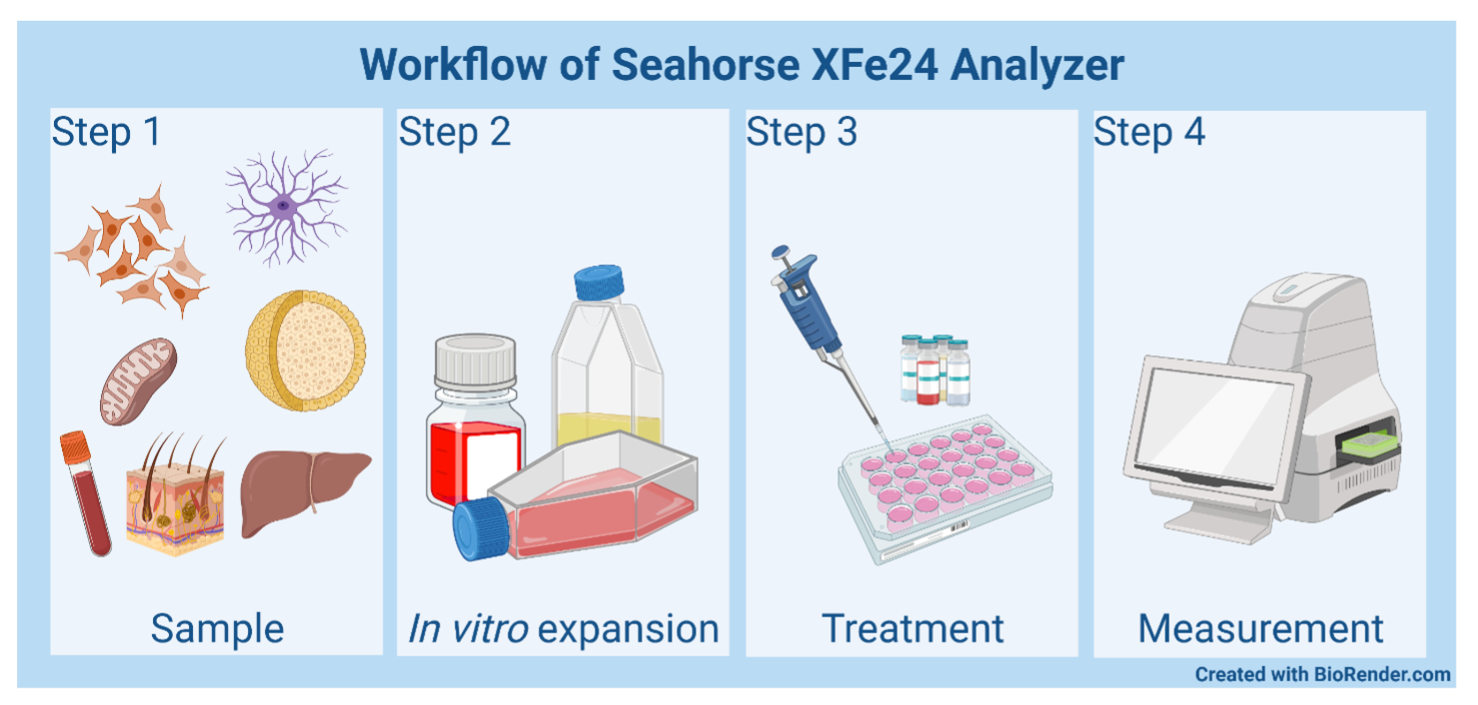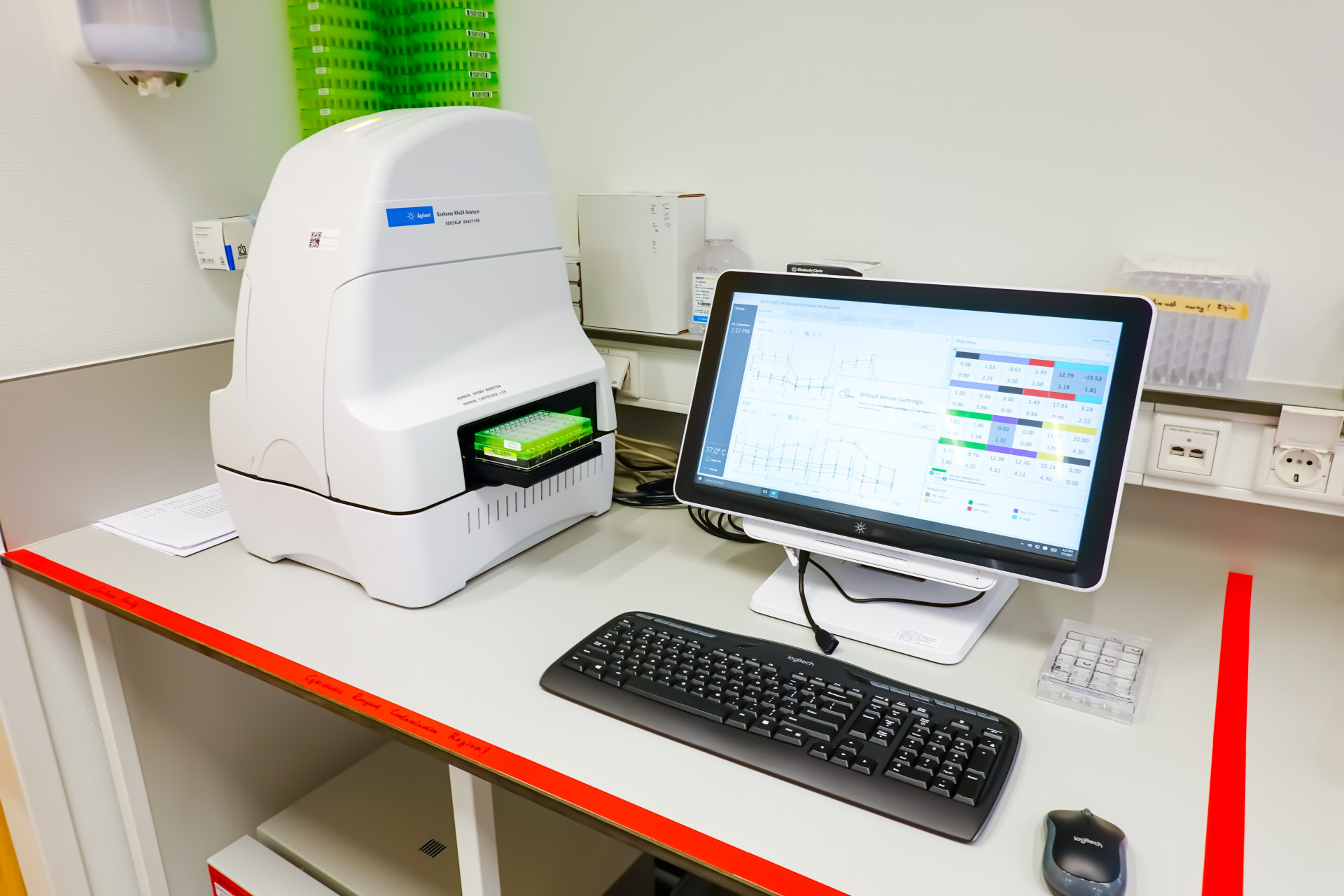What we offer:
The Seahorse XFe24 Analyzer, can be used for measuring a variety of key metabolic parameters and functions in isolated mitochondria, living cells (adherent and suspension) and organoids, cultured human or mouse organotypic tissue slices and fresh patient’s material, all in a blinded randomized manner in a 24-well format. This includes oxygen consumption rate (OCR) and extracellular acidification rate (ECAR)/proton efflux rate (PER) as key indicators of mitochondrial respiration and glycolysis, and such measurements provide us a systematic-level view of cellular metabolic function. It can be used to detect basal differences in oxidative phosphorylation and glycolysis of e.g., various cancer types, monitoring differential functional metabolism between healthy normal tissue and cancers as well as their responsiveness to (chemo)therapy and interventions.
The ability to measure the metabolic phenotype of cells and the shift between respiration and glycolysis under pathological conditions will allow you to connect physiological traits of cells with genomic and proteomic data.
Workflow:

The whole workflow of Seahorse XFe24 Analyzer depends on the assay- and sample-type. For adherent cells and organoids cells need to be plated in special cell culture plates at least 24 hours before measurement. Suspension cells and organotypic tissue slides could be plated in precoated special cell plate just before measurement. Standardized measurements normally take around 2~2.5 hours, but more specialized adapted runs can take up to 7-14 hours.
Assays possible include:
- Mitochondrial Stress
- Real-Time ATP Production Rate
- Glycolytic Rate
- Glycolytic Stress
- Substrate Oxidation Stress (Glucose/Glutamine/Long-chain fatty acid)
- Fatty Acid Oxidation Stress (Palmitate-based)
- Cell Energy Phenotype
- Acute Stimulation/Inhibition/Toxicity Assay
- T Cell Activation
- Customized assay depending on request
Our equipment:
Seahorse XFe24 Analyzer (for now only at ambient oxygen)

